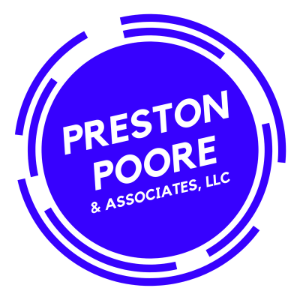Integrity: The Better the Person, the Better the Leader
Printer-Friendly Version
Evan, my co-worker at our multi-billion-dollar consumer products company, stopped me in the parking lot. “Have you noticed how execution’s gotten sloppy over the past year?”
I nodded.
He looked down. “Not too long ago, this was one of the best-executing markets. I’m very disappointed. What’s happened?”
I paused. I did know what had happened, but if I told Evan the truth, I knew there’d be consequences. Maybe even for Evan himself. But integrity is a word that means something to me, so I mustered up my courage and told him what I knew. “Did you know the local management team is running a side business out of the office?”
Shocked, he just said, “No.”
“The local team is focused on building their side business, and they’re using company assets for personal gain. They’re violating our Code of Business Conduct, and they’ve lost focus on their primary job responsibilities. That’s the reason execution is so sloppy.”
I could tell that Evan didn’t quite believe me, so I walked him over to a manager’s company vehicle in the parking lot.
“See that?” I pointed to a window decal on the manager’s windshield. “That’s the logo for their side business.”
He shook his head.
“That’s just the tip of the iceberg too. If you poke around, you’ll probably find out what’s going on.”
“I will, Preston. I will.”
True to his word, Evan poked. He discovered that the local management team had invented a new sports gadget and were leveraging the company’s people, tools, and supplies to build their side business. Over time, they’d become so consumed with growing their business that they neglected their primary responsibility: marketplace execution.
If questioned about negative business results, the team deflected the inquiries and pointed to factors “outside their control.” They disguised their side interest by saying all the right things to upper management. Consequently, the team was left alone to work on their own business on our company’s dime. Eventually, their audio and video didn’t match. Without accountability, the team had abandoned their integrity and slowly moved into corruption.
After my conversation with Evan, I knew that the circumstances and potential consequences would escalate. I called my manager and told him about the conversation. My manager told Human Resources and other leaders about the likely Code of Business Conduct violation.
Several local market leaders were fired for leveraging company assets and personally gaining from their efforts after an investigation.
Looking back, I’m glad I made the right decision even though it was tough and even though I was saddened that some employees lost their jobs. But the experience reminded me of the necessity of integrity—with others and with myself.
I learned that when you become a person of integrity, you can become a leader, others will follow because of your honesty.
Unfortunately, one more potential consequence came to pass due to that side-business hustle operation going on right under my nose. The investigation also revealed that Evan might have seen the signals but had turned his head and ignored them. Regardless, he was found to be complicit and was forced to retire.
It was a bittersweet moment. I’d worked with the team for years and didn’t want any harm to come to them. At the same time, I knew I needed to expose the wrong I saw. For years after these displacements, I worked in fear of retribution, thinking that someone would take revenge for my standing up for what was right.
Gratefully, that never happened, and I remained true to my value of integrity. Now, anytime I’m tempted to skirt the truth in my words or actions, I think about that side-business logo that ultimately cost multiple people their jobs.
It doesn’t take much for a house of cards to fall.
That’s why leaders need to lead with integrity. If you’re the one responsible for building a strong team or a strong company, your peers and employees need to know they can trust you.
Being integrous is hard but worth the cost because it will be your best friend and help you achieve your goals. So, how does one measure their integrity? In John C. Maxwell’s book, Becoming a Person of Influence, he offers ten questions to evaluate your integrity [i]. As you read the questions, rate yourself from 1 to 10, with ten being fully integrous and 1 with no integrity:
1. How well do I treat people from whom I can gain nothing?
2. Am I transparent with others?
3. Do I role-play based on the person(s) I’m with?
4. Am I the same person when I’m in the spotlight as I am when I’m alone?
5. Do I quickly admit wrongdoing without being pressed to do so?
6. Do I put other people ahead of my personal agenda?
7. Do I have an unchanging standard for moral decisions, or do circumstances determine my choices?
8. Do I make difficult decisions, even when they have a personal cost attached to them?
9. When I have something to say about people, do I talk to them or about them?
10. Am I accountable to at least one other person for what I think, say, and do?
Did any of those hit home? Take some time to reflect and choose your three areas that need the most improvement. Then, pick your top area of needed improvement. Ask yourself, why is it essential for me to improve in this area? How will I become a better person and a better leader? Why will it be necessary to others? What actions will I take to grow, when will I start, and who will hold me accountable?
Take time to write down your answers to the above questions. Let the words from my lips move to your fingertips. If you do, you’ll know what you think by reading what you write. Also, share what you’ve written down with someone you trust and ask them to hold you accountable. Real change begins when you are vulnerable and transparent with someone and ask for their support.
I’ll end with a quote from Thomas Jefferson, “God grant that men (and women) of principle be our principal men (and women).” [ii] May you be integrous in all of your ways and be a man or woman of principle.
Want to discover how to level up your leadership skills and become a person others will gladly follow? Visit my website, prestonpoore.com, today!
Cheers,
Preston
[i]Excerpt From John C. Maxwell & Jim Dornan. “Becoming a Person of Influence.” Apple Books. https://books.apple.com/us/book/becoming-a-person-of-influence/id607555354
[ii]Excerpt From John C. Maxwell & Jim Dornan. “Becoming a Person of Influence.” Apple Books. https://books.apple.com/us/book/becoming-a-person-of-influence/id607555354

Preston Poore
I help leaders lead—without the buzzwords or boring theories. After years in the Fortune 500 world, I’ve seen it all—bad bosses, great teams, and more leadership fails than I can count. Now, I share real stories, practical tips, and the occasional hard-earned lesson to help you lead with confidence. Let’s figure this out together.
Discover Your Life Purpose
Do you wake up each day dreading the idea of spending another day at work? If you’ve failed to discover and build your life around your life purpose, you might feel dissatisfied with your life. Flip the script! Get this special eBook, discover your purpose, and begin living a more fulfilling life today!


